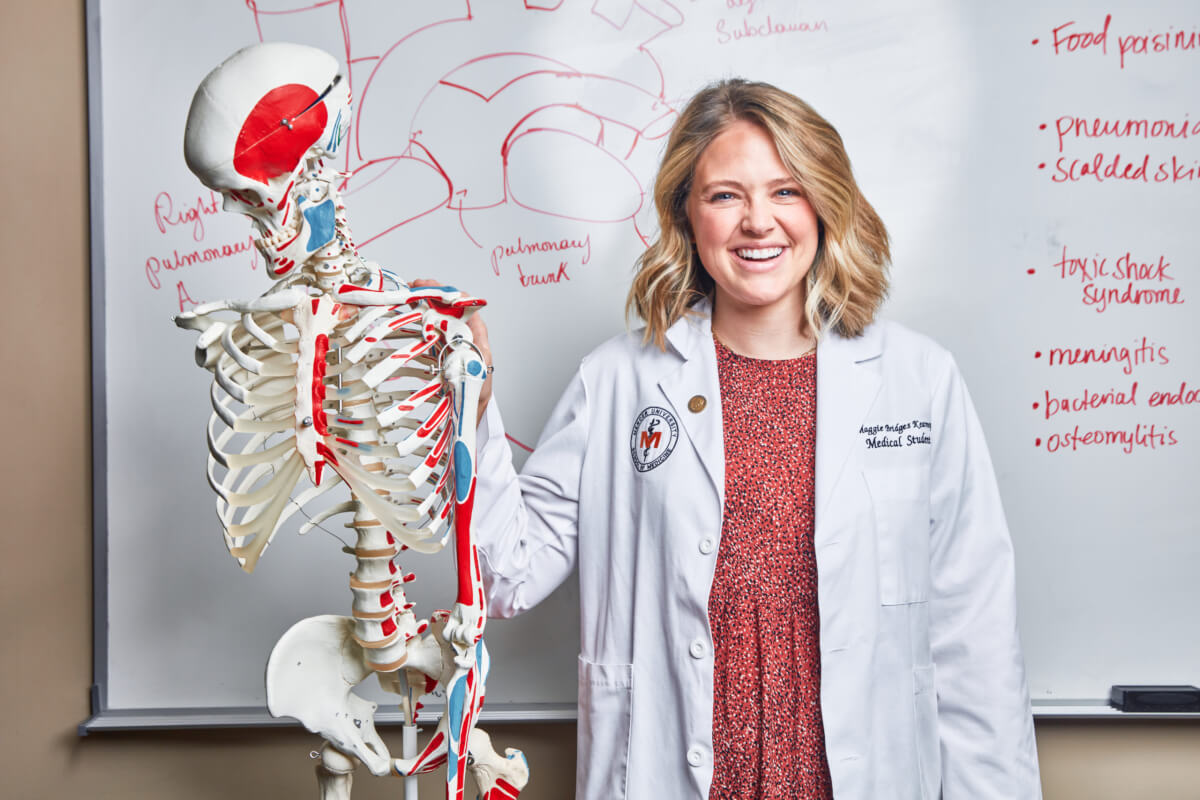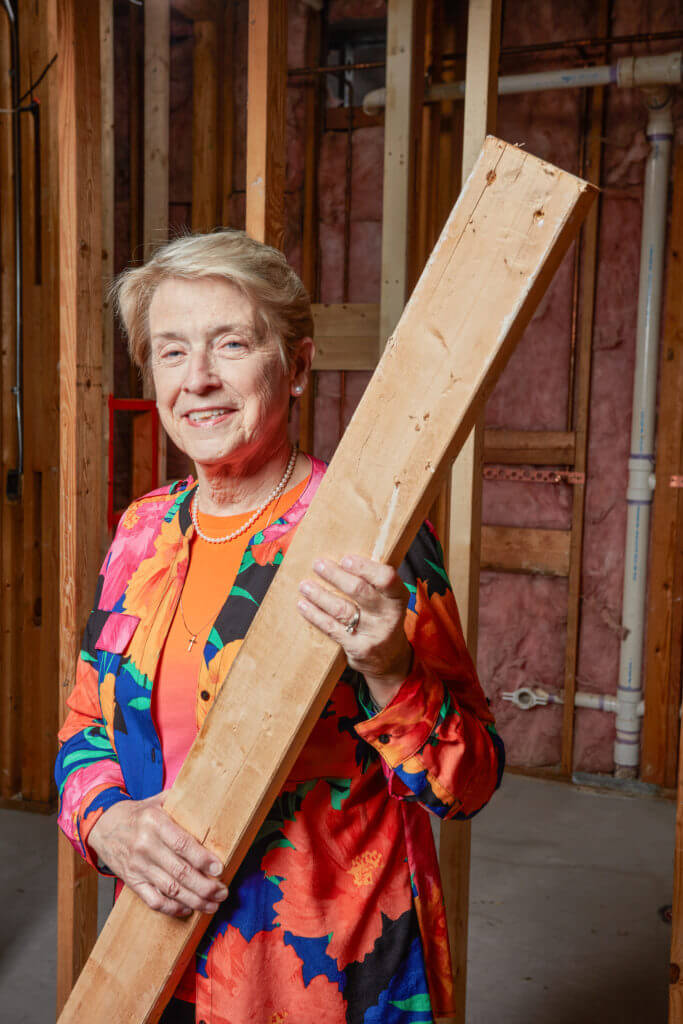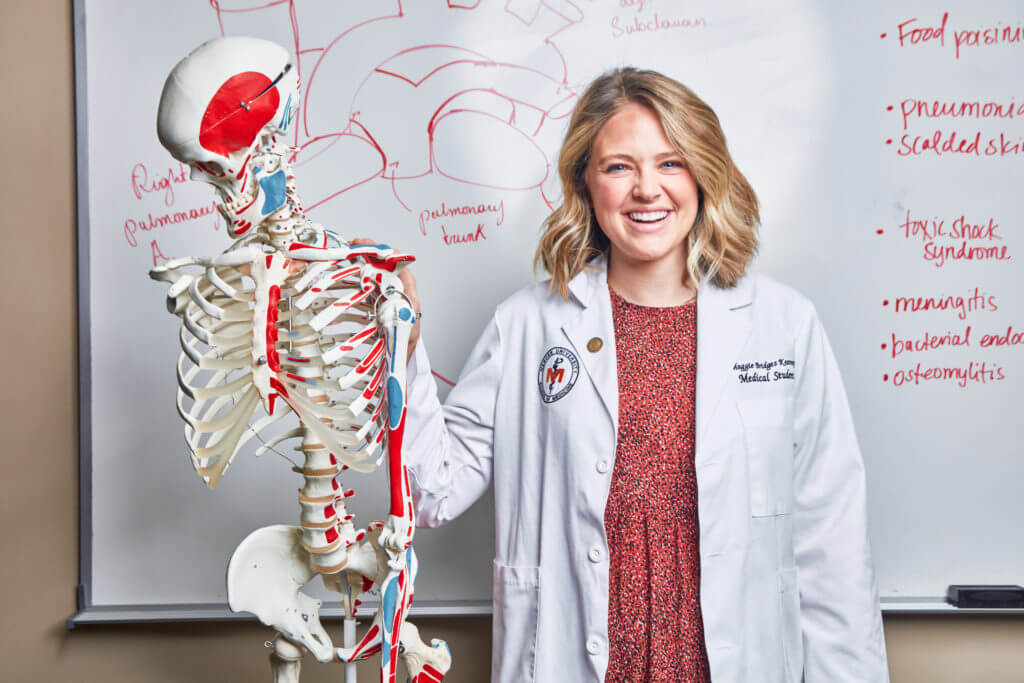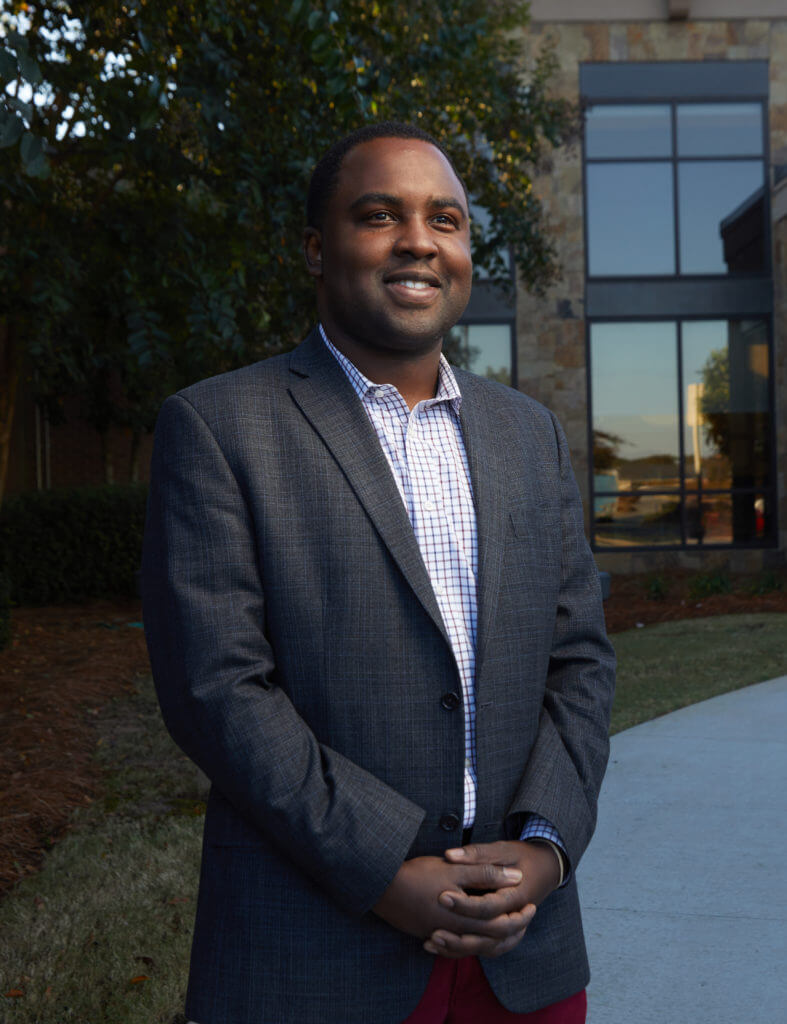
Access for all
By Edna Ruiz
Photography by Matt Odom

Access to health care is something many of us can take for granted. An annual trip to see your doctor or an emergency visit may be a short drive for some, but not for most people in Georgia. Out of the 159 counties in the state, 120 of those are considered to be rural. Rural areas face numerous health disparities compared to urban areas.
According to the Centers for Disease Control and Prevention (CDC), rural Americans are at greater risk for death than urban Americans from five leading causes including heart disease, cancer, unintentional injury, chronic lower respiratory disease and stroke. Our neighbors to Central Georgia are living this reality.
However, there are local groups and organizations that have made it their mission to bring healthcare access to everyone.
There are many factors that contribute to why rural Georgians are dealing with these health disparities. The biggest factor is general access to health care. Because a basic clinic is sometimes hours away, some people either choose not to drive that far or just simply can’t.
“If you look at the Coronavirus disease, it shines a bright light on those disparities. The people who died in many of those rural areas from Coronavirus did not have access to basic and quality care that would help them control chronic disease,” said Dean of Mercer University School of Medicine Dr. Jean Sumner.
Dr. Sumner is leading the next generation of physicians who are already making a difference in rural Georgia. About 70 percent of the School of Medicine class is from outside of metro Atlanta and about 50 percent of the students are from completely rural areas. The School of Medicine makes it a mission to only accept Georgians, with a preference for those from rural and underserved populations.
“For years we were accepting outstanding academic students based on academic performance pretty much alone,” said Dr. Sumner. “Now, on top of academics, we look at where they are from and how committed they are to our mission.”
One of those is third-year medical student Maggie Bridges Kearney, a 29-year-old mother and wife from Brinson. In 2019, Brinson’s population was recorded at 177. Kearney is also a Nathan Deal Scholar and will get a majority of her tuition paid for as she has strong ties to rural Georgia and plans to go back to her hometown to practice medicine upon graduating from residency.
“I’ve seen first-hand the combination of people’s ability to get to the right providers as well as people just not having access. People being uninsured and underinsured,” said Kearney. “I love the ability to be an advocate for my community one day and to understand its health needs. I want people to feel comfortable coming to me for their health care needs. I’m one of their own.”
Kearney grew up on a farm. Her dad is a farmer who grows everything from watermelons to blueberries. Her mother worked as a public health nurse, so she had more of an advantage to healthcare, but she knew many people in her town and surrounding towns were not as fortunate.
Before entering medical school, Kearney shadowed local pediatricians and saw firsthand how patients would not come until they were really sick and had not had wellness checks or vaccinations before. With the elderly population, she saw people who could either not afford medication or who did not know how to navigate the health-care system to find a way to afford the medication.
“You see people forgo getting a colonoscopy because that would require having to drive to the next town over and they do not have someone to drive them,” said Kearney. “Oftentimes, people simply don’t know how to ask for help or don’t want to, which is where physicians can play a huge role to bridge the gap of what this patient needs and the health-care system.”
Mercer School of Medicine is not only preparing tomorrow’s physicians, but they are already bringing healthcare to rural areas. Mercer has opened rural clinics in Plains, Fort Valley, Fort Gaines and Eatonton. In January 2022, Mercer will open its fifth clinic in Hamilton, which will serve Harris County with a population of about 36,000. A location for the sixth clinic is already in the works. Dr. Sumner said the goal is to open 30 clinics across Georgia to fill the need in underserved areas.
“Mercer is using every bit of resource and influence to change our state for the better,” said Dr. Sumner. “We are serious about our mission.”
The School of Medicine also leads the Center for Rural Health and Health Disparities, which is one of only two rural-focused National Institute of Health Centers of Excellence in the nation, and operates several programs focused on eliminating disparities in maternal and infant mortality, opioid overdose and chronic diseases.
In 2018, Mercer was awarded grant funds from the state and established Georgia Rural Health Innovation Center on its Macon campus. The Center focuses on the development of research programs, analyzes significant health system problems and proposes solutions to improve community health everywhere.
Other schools, such as Central Georgia Technical College (CGTC) and Middle Georgia State University (MGA) also are preparing future health-care workers to make a difference in our state.
MGA’s School of Health and Natural Sciences offers several programs such as nursing, occupational therapy and respiratory therapy. The school’s 170-square-mile footprint has campuses in rural areas like Dublin and Cochran. The nursing program graduates about 260 students each year.
“Those students are typically employed in rural communities,” said MGA Provost Dr. David Jenks. “The vast majority of our graduates at Middle Georgia State University stay within 100 miles of our region in Middle Georgia. So, all of the students that we are graduating in healthcare are building resources for the Middle Georgia region.”
MGA is also working to expand and add programs such as physical therapy assistance, which will eventually be the launch pad for a doctorate in Physical Therapy.
CGTC is also looking for new ways to better prepare future health-care workers. The school currently offers an associate of science degree in Nursing, which allows students to take the National Council Licensure Examination to become a Registered Nurse. CGTC graduates about 80 nursing students a year, many of whom stay in the area upon graduation to work in local health-care facilities. Students also get experience working in rural areas such as Peach, Pulaski and Baldwin counties.
“Our students really saw rural health in Pulaski County during the rise of COVID-19. Taylor Regional allowed our students to come in, with the right PPE (personal protective equipment) to take care of their COVID patients,” said CGTC Registered Nursing Program Chair Jessica Wilcox. “Our students were able to see some of the sickest of the sick of those who are from rural Georgia.”
Wilcox said CGTC is looking at the ability to also work with telehealth and teach students more about this process and the advancement it has made to help hospital systems such as Atrium Health Navicent (AHN). While virtual health is not new, the capability has quickly become more advanced.
“We are utilizing virtual care to reach more patients, especially those who have difficulty coming into our offices. I’ll be able to connect with them through video, look at their conditions and provide them care through care coordination. Once I determine their condition, I can send Home Health or a different nursing agency to come out to their home to take care of that patient,” said Dr. Gorby Leon, medical director for Atrium Health Navicent Primary Care Fort Valley, a facility of Atrium Health Navicent Peach.
Dr. Leon has treated numerous patients from rural areas. He sometimes sees people who drive several hours from surrounding areas. But he understands not everyone is able to do that frequently or at all.
“We have several areas, just in the Fort Valley area, that are considered food deserts. Because of that, we have an increase in patients with diabetes and patients who are suffering from diabetes,” said Dr. Leon.
Virtual health has become a helpful tool for him and his staff to get people the care they need and deserve. In 2017, AHN tried a ground-breaking program with ConnectWell that provided diabetic patients from areas in rural Georgia with internet-ready tablets that would allow patients to monitor their diabetes and interact with their primary care doctors.
“That program helped us get started with virtual health, and we slowly grew there,” said Dr. Leon. “But COVID-19 was a catalyst to push us where we were going anyway.”
The pandemic quickly pushed along the advancement of virtual health. Today, Dr. Leon said he sees about 60 percent of his patients through virtual health, mainly because of the hospital’s policy with COVID-19, but it also helps rural patients. AHN doesn’t just connect patients with any physician; they connect them with familiar faces, such as their primary physicians. The advancement in virtual health allows physicians to check vitals and other information with tools patients can use at home.
Piedmont Macon also has been using telemedicine to treat patients, especially when dealing with mental health. Virtual and telehealth has been a big benefit for behavioral health patients. Laura Whitaker, director of physician and provider relations for Piedmont Behavioral Health, said they started taking patients via virtual health in March 2020 and it has been a success ever since.
“The providers I have spoken with believe this is something that will definitely stay around,” said Whitaker. “They are able to have more reach for patients and provide access for patients in rural communities. They have a lot less cancellations. It has been very beneficial.”
Like Whitaker, Dr. Leon believes this is just the beginning with virtual health. As it continues to improve, physicians will be able to access more patients and hopefully reach the underserved population. But there is still work to be done.
“The more we can understand what the barriers are and have a way to quantify them, then we can utilize the limited resources we do have and apply them to places that have the biggest impact,” said Dr. Leon. “Virtual health is a good step for being able to at least visualize what’s happening from the patient’s home.”
Bridging the rural health-care gap will not happen overnight, but many organizations and people in our community are not giving up. They are actively working to get everyone the health care they need and deserve.







